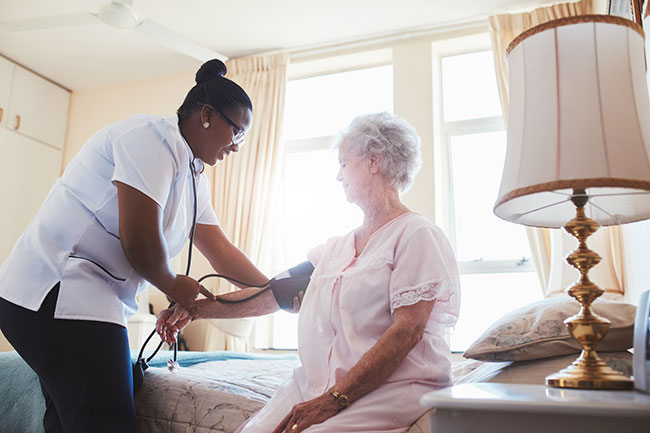Why Should a PN Work as a Live-In Nurse?
Posted On September 21,2017

Without a doubt, practical nurses (PNs) are one of the most underappreciated – and underpaid! – of the nursing professionals found in any healthcare facilities. They bear the burden of some of the most unsavory of duties while also having to deal with the emotional trauma of their patients.
In general, PNs do their work with a great deal of expertise and more than a modicum of sympathy and can easily find employment as a live-in nurse. Better still, a live-in nurse position offers a host of other benefits and opportunities to a practical nurse. The following ones are the most notable:
Invaluable Patient Care Experience
While most of the duties performed by a practical nurse in a healthcare facility involve little more than routine hygienic maintenance and other mundane chores, the responsibilities of a live-in nurse stretch much further. In particular, in the home environment, a practical nurse is also responsible for such high-level duties as the medication schedule, the dietary requirements of the patient as well as their physical therapy requirements.
Avenue to a Higher Education
Practical nurses have a leg up on other types of nursing students as they have already completed a majority of the basic nursing courses. That is, PNs are schooled in how to perform specific tasks rather than on how to understand why a specific procedure should be performed. A live-in PN nurse, however, can circumvent this deficiency in schooling with practical knowledge derived from a real patient. In many cases, degree credit can be obtained for real-world experience.
Paves the Way for Career Advancement
Working as a live-in nurse allows for a fair amount of free time. This time can be profitably spent studying for an RN degree. While this degree can provide a better paying job in itself, it also the graduate to eventually move into an even more financially lucrative role in nursing management. In short, the time spent as a practical nurse in a live-in environment is doubly valuable as it allows both practical and academic opportunity. Not only will the student have time to study but also to put those studies on a real world patient.
One-on-one Patient Experience
In a traditional facility such as a hospital or hospice, there are multiple competing demands on the time of a PN. In addition to the standard duties, you will also have to fill out innumerable forms and attend numerous weekly meetings. In a one-on-one patient/nurse environment, these subsidiary duties are significantly curtailed. More importantly, the live-in experience truly focuses where a PN’s priorities should be – that is, with the patient.
Makes You a Better Nurse
Almost as a rule, live-in nurses see the best and the very worst situations involving patient care. These experiences, while not always the most pleasant, also deliver a wealth of practical information about how to deal with a multitude of real life situations. In short, your training as a live-in nurse will augment your academic training as a PN and pave the way for further success in clinical and hospital settings.
For more information on the challenges and opportunities available to practical nurses as a live-in nurse, please contact us at the Athena Career Academy. We can be found online or reached directly by phone at 419.329.4075.
